Econometric Tools for Macroeconomic Forecasting and Simulation
The aim of this research group is to enhance research on, and development, implementation, evaluation, and application of quantitative macroeconometric models for forecasting and analysing aggregate economic fluctuations and developments. Research in this group contributes to the econometric foundation and the methodological improvements of the IWH forecasts. During the last years, the IWH has highly specialised in macroeconomic modelling, both for flash estimates and medium-term projections. Furthermore, this group conducts comprehensive empirical analysis and develops econometric tools that are used for third-party funded projects. In the last years, particular models have been developed for e.g. Volkswagen Financial Services AG and for GIZ. The research group contributed in particular on macroeconomic modelling for ministries in Kyrgyzstan and Tajikistan as well as for the institute of forecasting and macroeconomic research (IFMR) Uzbekistan.
IWH Data Project: IWH Real-time Database
Research Cluster
Economic Dynamics and StabilityYour contact

Mitglied - Department Macroeconomics
EXTERNAL FUNDING
07.2022 ‐ 12.2026
Evaluation of the InvKG and the federal STARK programme
German Federal Ministry for Economic Affairs and Climate Action
On behalf of the Federal Ministry of Economics and Climate Protection, the IWH and the RWI are evaluating the use of the approximately 40 billion euros the federal government is providing to support the coal phase-out regions..
10.2019 ‐ 01.2023
Climate Resilient Economic Development
Deutsche Gesellschaft für Internationale Zusammenarbeit (GIZ) GmbH
Climate change has a substantial impact on economic growth and a country’s development. This increases the need for reliable and viable approaches to assessing the impact of climate risks and potential adaptation scenarios. Political decision-makers in ministries of planning and economy need sound forecasts in order to design and finance adequate economic policy instruments and actively to take countermeasures. In the pilot countries (Georgia, Kazakhstan and Vietnam), climate risk is included in macroeconomic modelling, enabling the results to be integrated into the policy process so as to facilitate adapted economic planning. The IWH team is responsible for macroeconomic modelling in Vietnam.
05.2020 ‐ 09.2023
ENTRANCES: Energy Transitions from Coal and Carbon: Effects on Societies
European Commission
ENTRANCES aims at examining the effects of the coal phase-out in Europe. How does the phase-out transform society – and what can politics do about it?
This project has received funding from the European Union’s Horizon 2020 research and innovation programme under grant agreement No 883947.
01.2018 ‐ 12.2023
EuropeAid (EU Framework Contract)
European Commission
07.2016 ‐ 12.2018
Climate Protection and Coal Phaseout: Political Strategies and Measures up to 2030 and beyond
Umweltbundesamt (UBA)
01.2017 ‐ 12.2017
Support to Sustainable Economic Development in Selected Regions of Uzbekistan
Deutsche Gesellschaft für Internationale Zusammenarbeit (GIZ) GmbH
01.2017 ‐ 12.2017
Short-term Macroeconomic Forecasting Model in Ministry of Economic Development and Trade of Ukraine
Deutsche Gesellschaft für Internationale Zusammenarbeit (GIZ) GmbH
01.2016 ‐ 12.2017
Development of analytical tools based on Input-Output table
Deutsche Gesellschaft für Internationale Zusammenarbeit (GIZ) GmbH
The aim of the project was the development of an analytical tool to assess the gains and losses of possible state programs supporting the development of the private sector of the Tajik economy.
11.2015 ‐ 12.2016
Employment and Development in the Republic of Uzbekistan
Deutsche Gesellschaft für Internationale Zusammenarbeit (GIZ) GmbH
Support to sustainable economic development in selected regions of Uzbekistan
05.2016 ‐ 05.2016
Framework and Finance for Private Sector Development in Tajikistan
Deutsche Gesellschaft für Internationale Zusammenarbeit (GIZ) GmbH
02.2016 ‐ 04.2016
Macroeconomic Reforms and Green Growth - Assessment of economic modelling capacity in Vietnam
Deutsche Gesellschaft für Internationale Zusammenarbeit (GIZ) GmbH
Refereed Publications
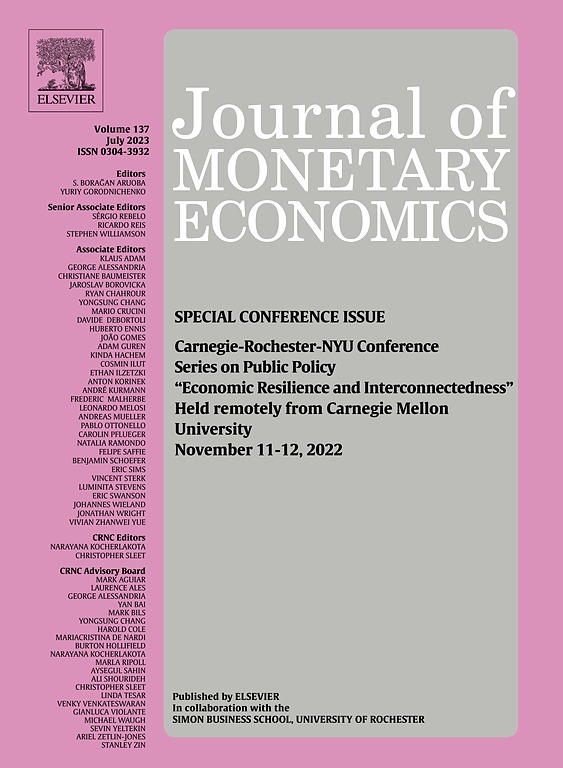
Understanding Post-Covid Inflation Dynamics
in: Journal of Monetary Economics, November 2023
Abstract
We propose a macroeconomic model with a nonlinear Phillips curve that has a flat slope when inflationary pressures are subdued and steepens when inflationary pressures are elevated. The nonlinear Phillips curve in our model arises due to a quasi-kinked demand schedule for goods produced by firms. Our model can jointly account for the modest decline in inflation during the Great Recession and the surge in inflation during the post-COVID period. Because our model implies a stronger transmission of shocks when inflation is high, it generates conditional heteroskedasticity in inflation and inflation risk. Hence, our model can generate more sizeable inflation surges due to cost-push and demand shocks than a standard linearized model. Finally, our model implies that the central bank faces a more severe trade-off between inflation and output stabilization when inflation is elevated.
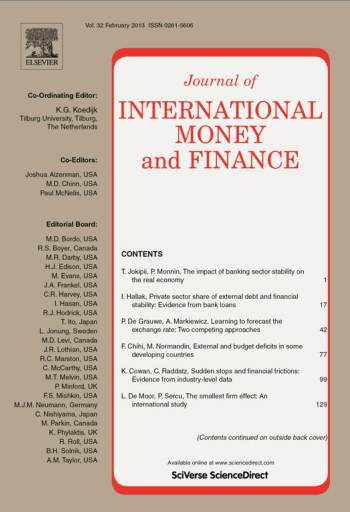
Conditional Macroeconomic Survey Forecasts: Revisions and Errors
in: Journal of International Money and Finance, November 2023
Abstract
Using data from the European Central Bank's Survey of Professional Forecasters and ECB/Eurosystem staff projections, we analyze the role of ex-ante conditioning variables for macroeconomic forecasts. In particular, we test to which extent the updating and ex-post performance of predictions for inflation, real GDP growth and unemployment are related to beliefs about future oil prices, exchange rates, interest rates and wage growth. While oil price and exchange rate predictions are updated more frequently than macroeconomic forecasts, the opposite is true for interest rate and wage growth expectations. Beliefs about future inflation are closely associated with oil price expectations, whereas expected interest rates are related to predictions of output growth and unemployment. Exchange rate predictions also matter for macroeconomic forecasts, albeit less so than the other variables. With regard to forecast errors, wage growth and GDP growth closely comove, but only during the period when interest rates are at the effective zero lower bound.

Evidence-based Support for Adaptation Policies in Emerging Economies
in: Low Carbon Economy, No. 1, 2023
Abstract
Climate change is increasingly evident, and the design of effective climate adaptation policies is important for regional and sectoral economic growth. We propose different modelling approaches to quantify the socio-economic impacts of climate change on three vulnerable countries (Kazakhstan, Georgia, and Vietnam) and design specific adaptations. We use a Dynamic General Equilibrium (DGE) model for Vietnam and an economy-energy-emission (E3) model for the other two countries. Our simulations until 2050 show that selected adaptation measures, in particular in the agricultural sector, have positive implications for GDP. However, some adaptation measures can even increase greenhouse gas emissions. Focusing on GDP alone can lead to welfare-reducing policy decisions.
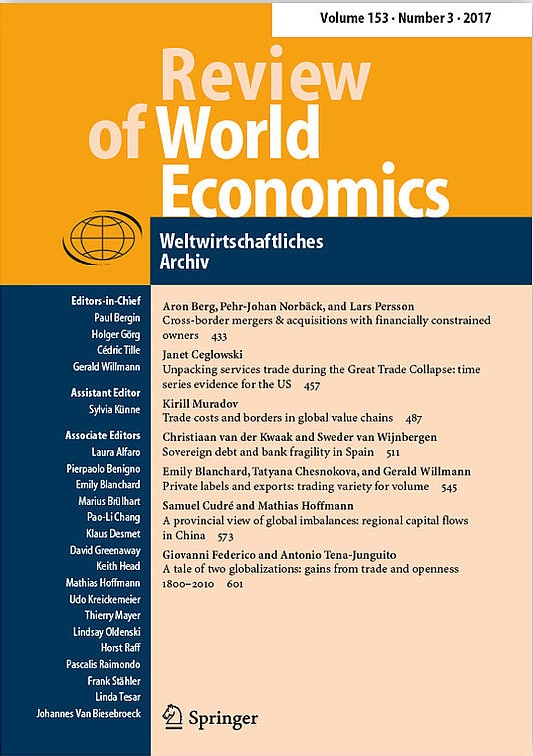
Monetary Policy in an Oil-dependent Economy in the Presence of Multiple Shocks
in: Review of World Economics, February 2023
Abstract
Russian monetary policy has been challenged by large and continuous private capital outflows and a sharp drop in oil prices during 2014. Both contributed to significant depreciation pressures on the ruble and led the central bank to give up its exchange rate management strategy. Against this background, this work estimates a small open economy model for Russia, featuring an oil price sector and extended by a specification of the foreign exchange market to correctly account for systematic central bank interventions. We find that shocks to the oil price and private capital flows substantially affect domestic variables such as inflation and output. Simulations for the estimated actual strategy and alternative regimes suggest that the vulnerability of the Russian economy to external shocks can substantially be lowered by adopting some form of inflation targeting. Strategies to target the nominal exchange rate or the ruble price of oil prove to be inferior.
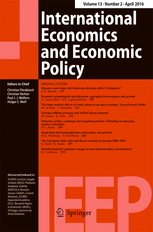
Business Cycle Characteristics of Mediterranean Economies: a Secular Trend and Cycle Dynamics Perspective
in: International Economics and Economic Policy, October 2022
Abstract
This study analyzes business cycle characteristics for all 20 major contemporaneous economies bordering the Mediterranean Sea based on annual real gross domestic product series for the period from 1960 to 2019. The region we investigate corresponds to the Mare Internum region of the Imperial Roman Empire during the Nerva-Antonine and early Severan dynasty, i.e., at the time of the maximum extent of the Roman Empire around 100 to 200 CE. The covered area encircles the Mediterranean, including economies now belonging to the European Union as well as acceding countries, Turkey, and the Middle East and North African economies. Using a components-deviation-cycle approach, we assess level trends and relative volatility of output. We also quantify the contribution of various factors to the business cycle variability within a region. We find cyclic commonalities and idiosyncrasies are related to ancient and colonial history and to contemporaneous trade relationships. Caliphate and Ottoman Empire membership as well as colonial rule in the twentieth century and contemporary Muslim share of population are the most promising predictors of business cycle commonalities in the region.
Working Papers
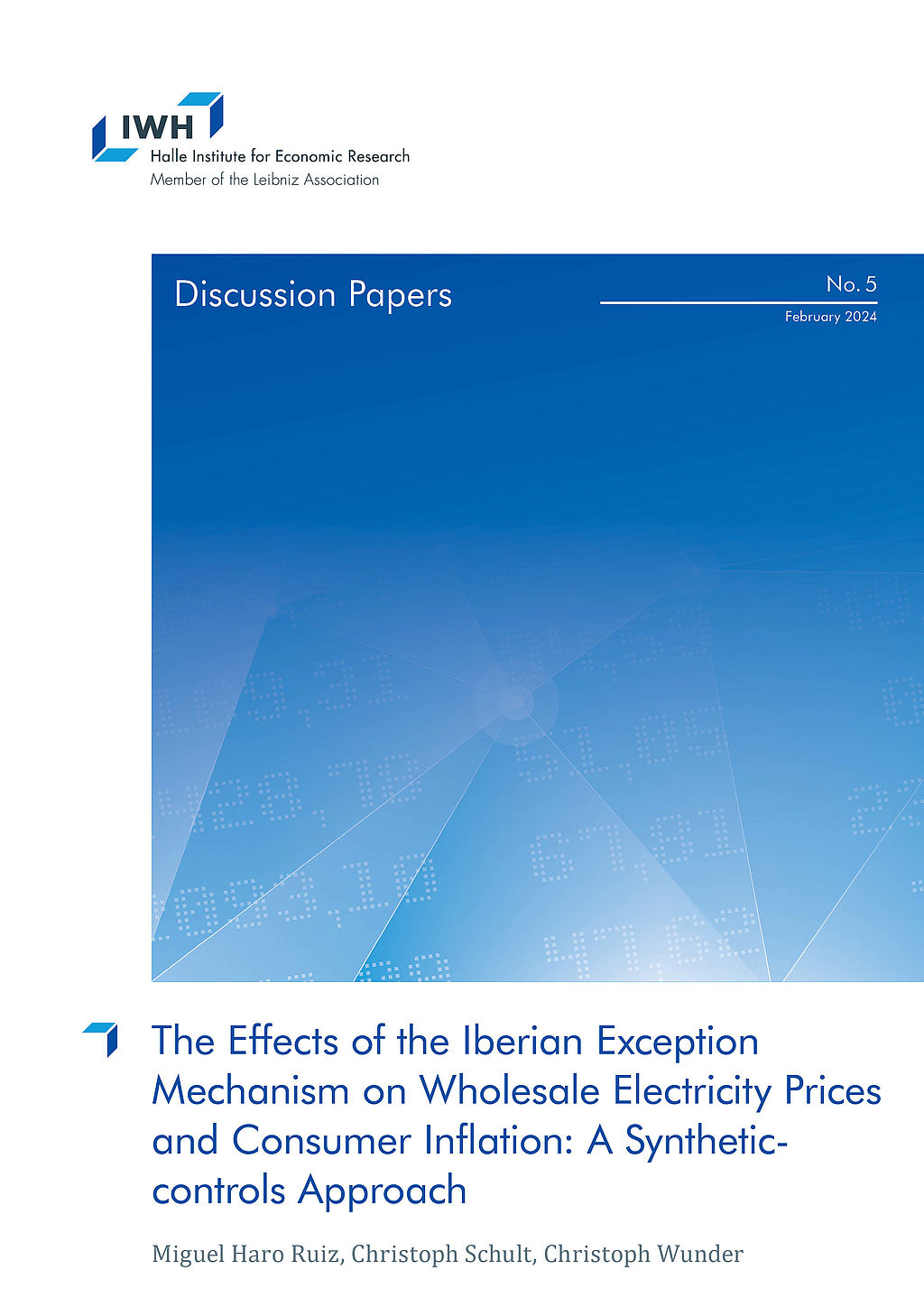
The Effects of the Iberian Exception Mechanism on Wholesale Electricity Prices and Consumer Inflation: A Synthetic-controls Approach
in: IWH Discussion Papers, No. 5, 2024
Abstract
This study employs synthetic control methods to estimate the effect of the Iberian exception mechanism on wholesale electricity prices and consumer inflation, for both Spain and Portugal. We find that the intervention led to an average reduction of approximately 40% in the spot price of electricity between July 2022 and June 2023 in both Spain and Portugal. Regarding overall inflation, we observe notable differences between the two countries. In Spain, the intervention has an immediate effect, and results in an average decrease of 3.5 percentage points over the twelve months under consideration. In Portugal, however, the impact is small and generally close to zero. Different electricity market structures in each country are a plausible explanation.
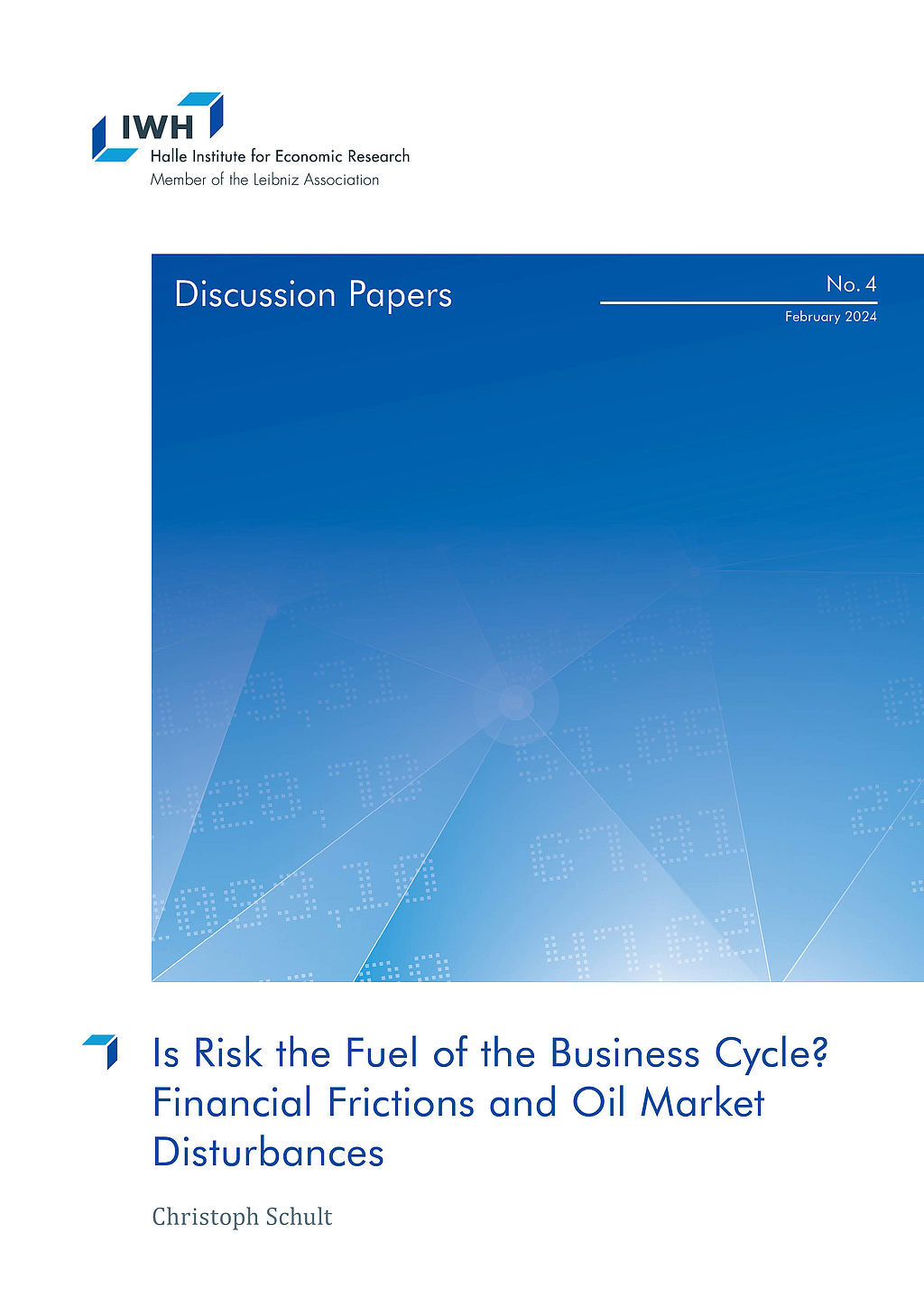
Is Risk the Fuel of the Business Cycle? Financial Frictions and Oil Market Disturbances
in: IWH Discussion Papers, No. 4, 2024
Abstract
I estimate a dynamic stochastic general equilibrium (DSGE) model for the United States that incorporates oil market shocks and risk shocks working through credit market frictions. The findings of this analysis indicate that risk shocks play a crucial role during the Great Recession and the Dot-Com bubble but not during other economic downturns. Credit market frictions do not amplify persistent oil market shocks. This result holds as long as entry and exit rates of entrepreneurs are independent of the business cycle.
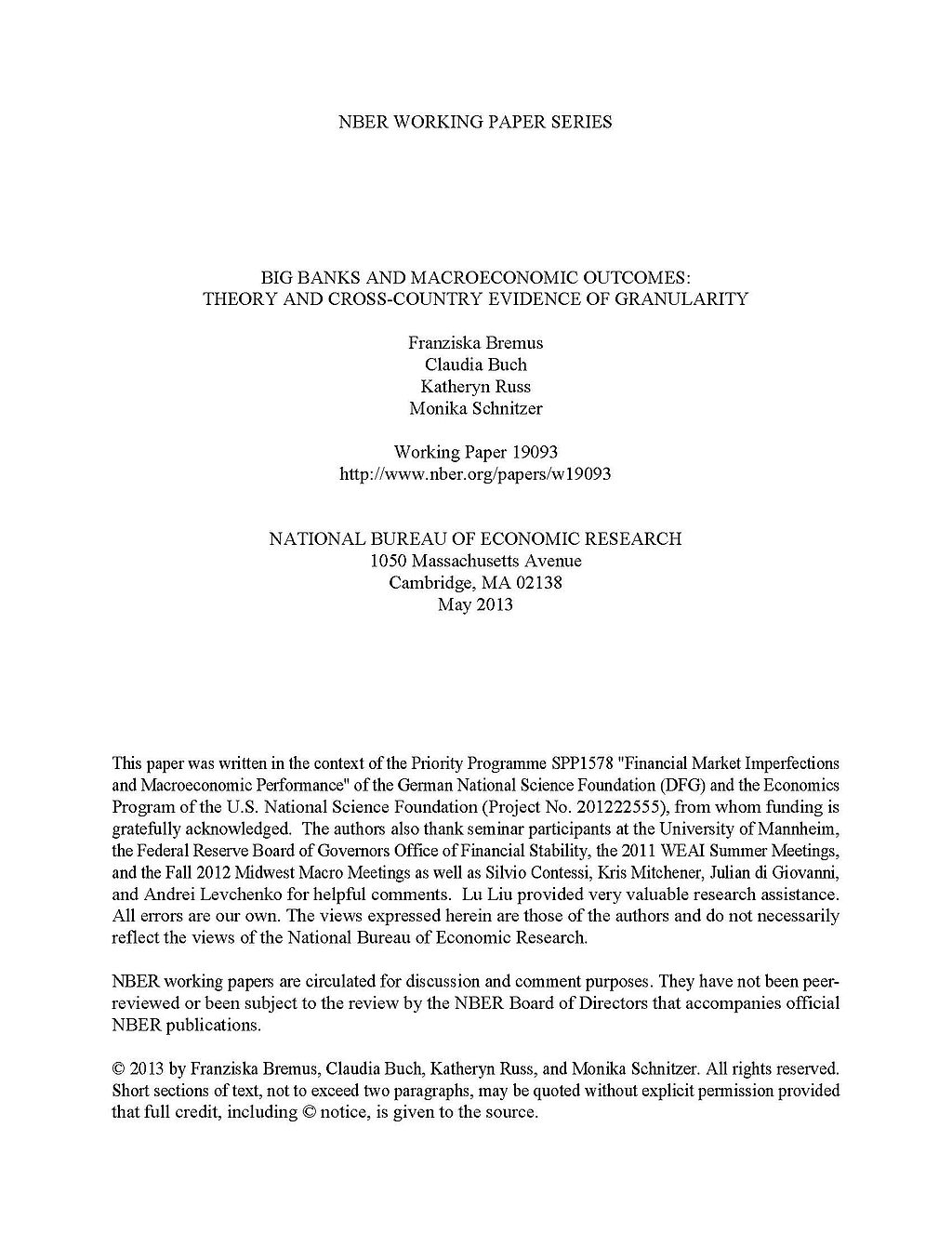
Expectations, Infections, and Economic Activity
in: NBER Working Paper, No. 27988, April 2022
Abstract
The Covid epidemic had a large impact on economic activity. In contrast, the dramatic decline in mortality from infectious diseases over the past 120 years had a small economic impact. We argue that people's response to successive Covid waves helps reconcile these two findings. Our analysis uses a unique administrative data set with anonymized monthly expenditures at the individual level that covers the first three Covid waves. Consumer expenditures fell by about the same amount in the first and third waves, even though the risk of getting infected was larger in the third wave. We find that people had pessimistic prior beliefs about the case-fatality rates that converged over time to the true case-fatality rates. Using a model where Covid is endemic, we show that the impact of Covid is small when people know the true case-fatality rate but large when people have empirically-plausible pessimistic prior beliefs about the case-fatality rate. These results reconcile the large economic impact of Covid with the small effect of the secular decline in mortality from infectious diseases estimated in the literature.
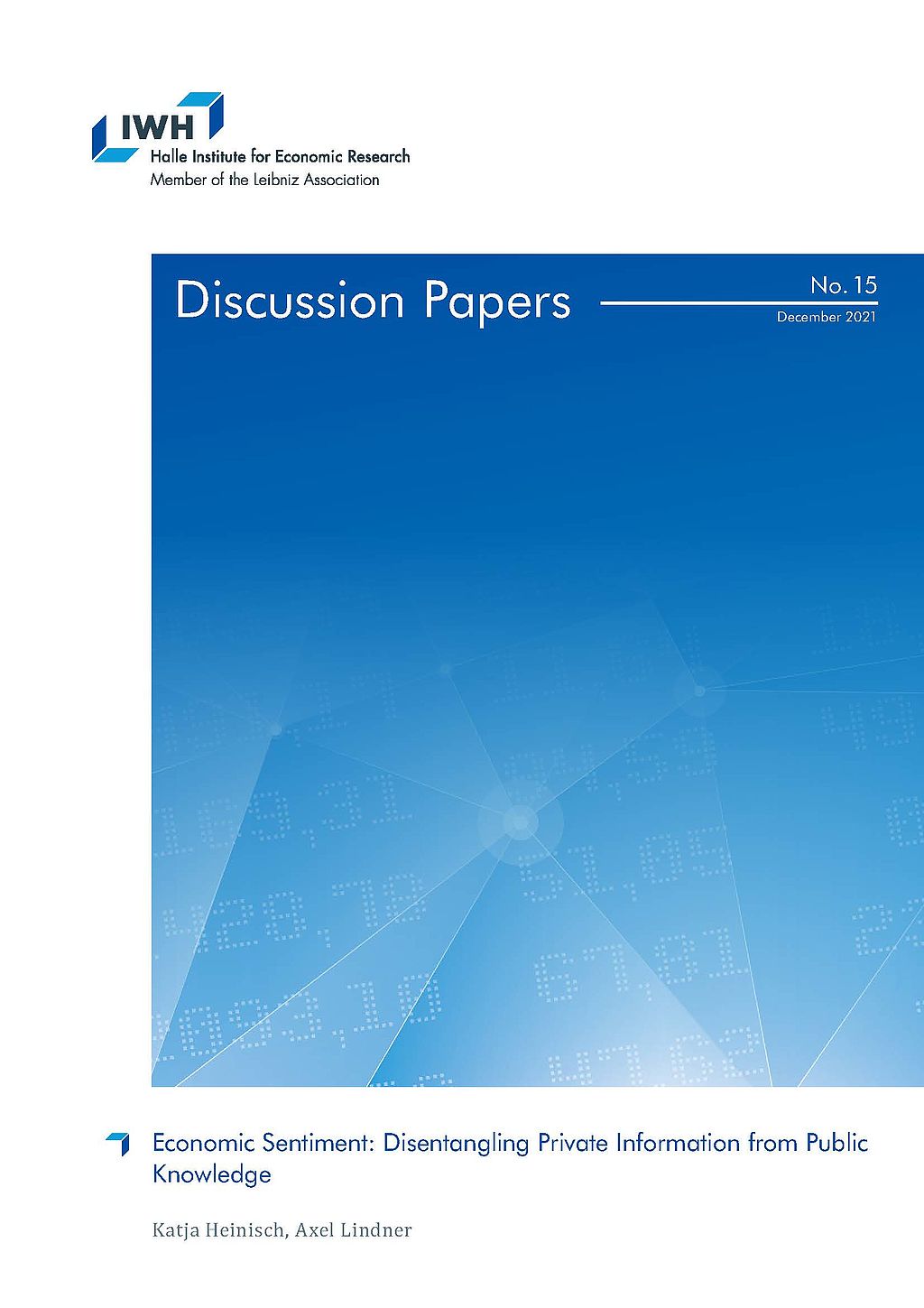
Economic Sentiment: Disentangling Private Information from Public Knowledge
in: IWH Discussion Papers, No. 15, 2021
Abstract
This paper addresses a general problem with the use of surveys as source of information about the state of an economy: Answers to surveys are highly dependent on information that is publicly available, while only additional information that is not already publicly known has the potential to improve a professional forecast. We propose a simple procedure to disentangle the private information of agents from knowledge that is already publicly known for surveys that ask for general as well as for private prospects. Our results reveal the potential of our proposed technique for the usage of European Commissions‘ consumer surveys for economic forecasting for Germany.
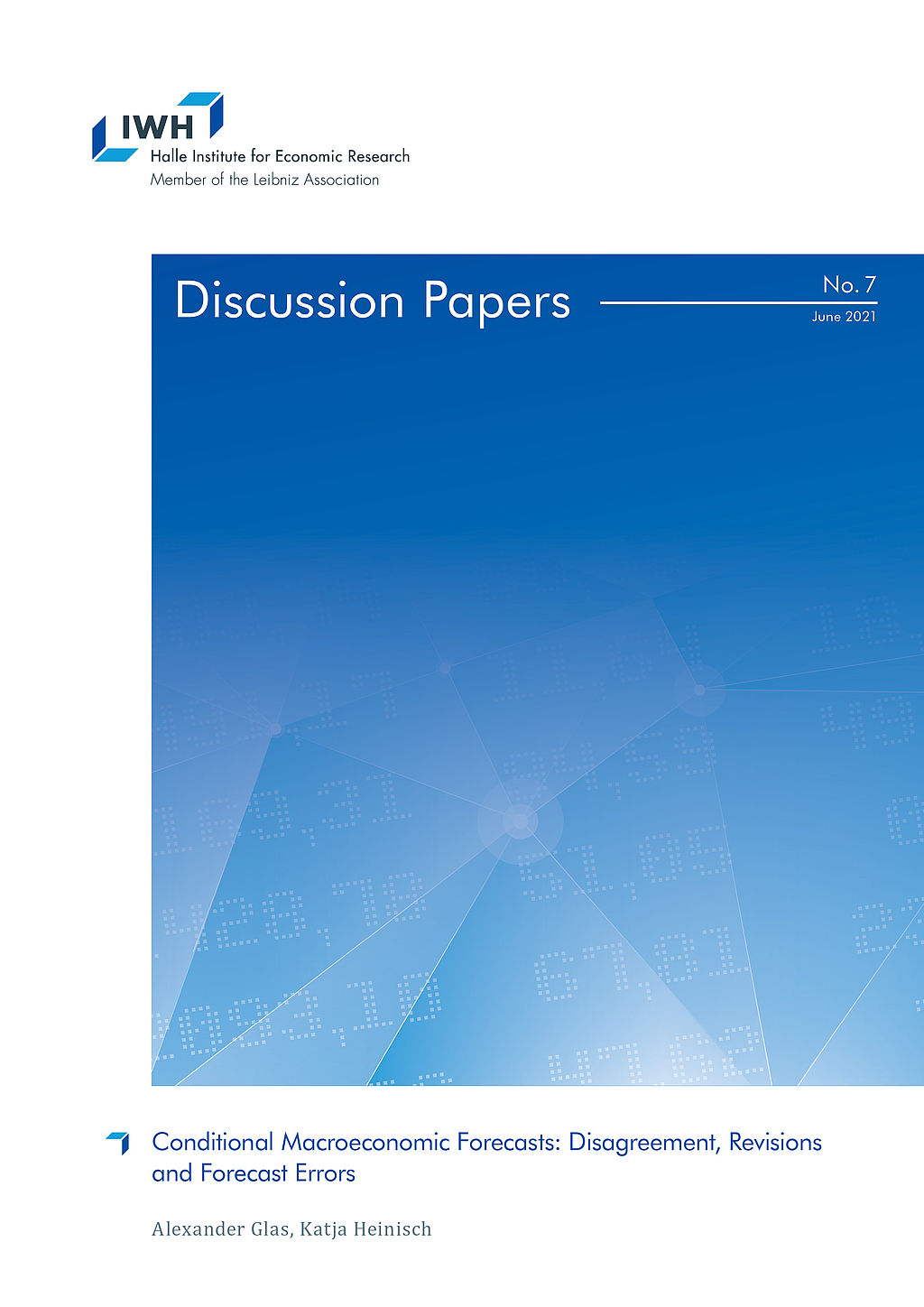
Conditional Macroeconomic Forecasts: Disagreement, Revisions and Forecast Errors
in: IWH Discussion Papers, No. 7, 2021
Abstract
Using data from the European Central Bank‘s Survey of Professional Forecasters, we analyse the role of ex-ante conditioning variables for macroeconomic forecasts. In particular, we test to which extent the heterogeneity, updating and ex-post performance of predictions for inflation, real GDP growth and the unemployment rate are related to assumptions about future oil prices, exchange rates, interest rates and wage growth. Our findings indicate that inflation forecasts are closely associated with oil price expectations, whereas expected interest rates are used primarily to predict output growth and unemployment. Expectations about exchange rates and wage growth also matter for macroeconomic forecasts, albeit less so than oil prices and interest rates. We show that survey participants can considerably improve forecast accuracy for macroeconomic outcomes by reducing prediction errors for external conditions. Our results contribute to a better understanding of the expectation formation process of experts.

















